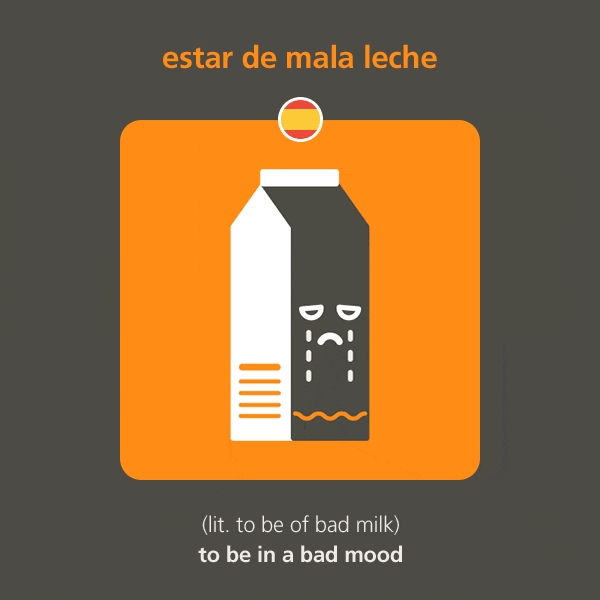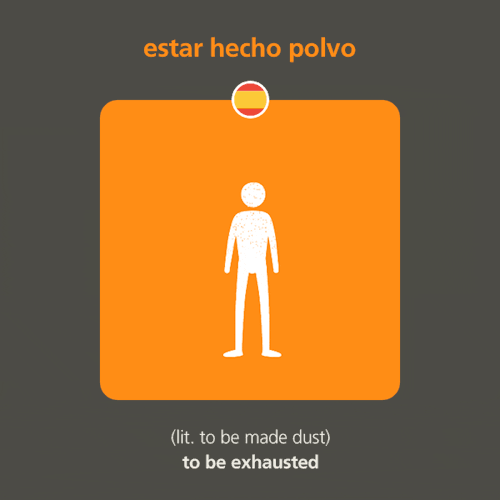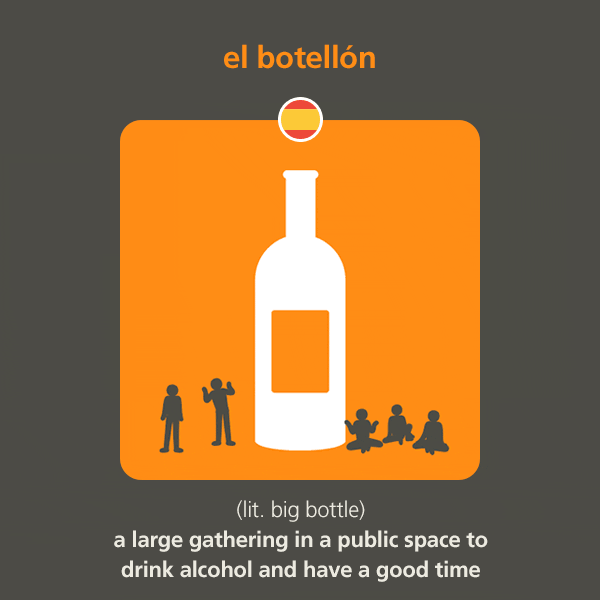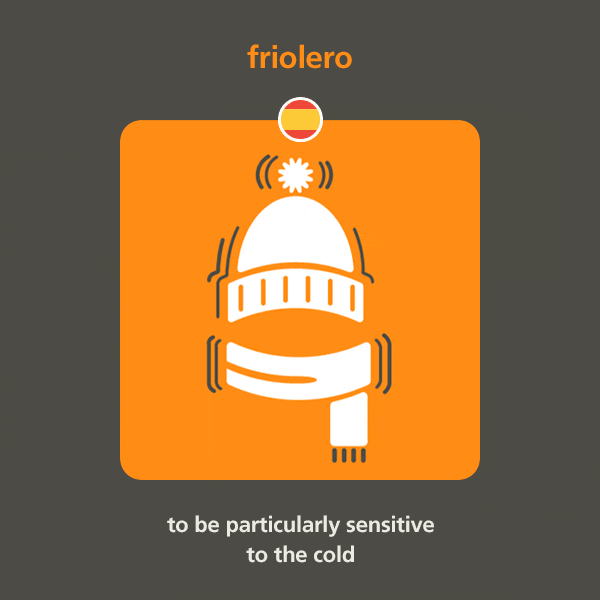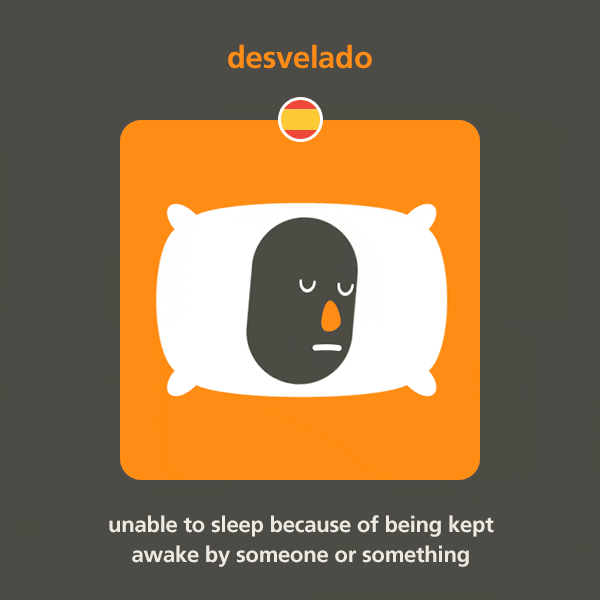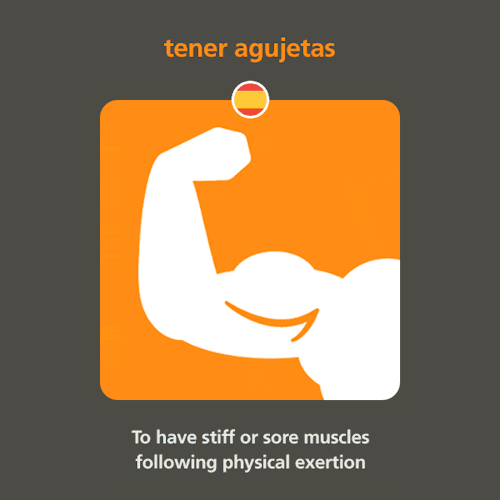#spanish langblr
Nuevo Verano by Amaia
This is such a soft feel-good kind of song, the lyrics is a little bit silly but that makes the song even more fun and the rhythm just fills my heart with joy and peace so I wanted to share it with y’all. as the title says the song is Nuevo Verano by Amaia (Mind you the translation might be a little bit off)
La luna se refleja en mis uñas mordidas
The moon reflects on my bitten nails
Todas las estrellas están juntas en mi bebida
All the stars are together in my drink
La guitarra suena un poco mal
The guitar sounds a little bit off
Pero no importa porque es verano
But it doesn’t matter because is summer
Y además últimamente estoy hablando
And besides, lately I’ve been talking
Me gusta hablar contigo
I like to talk to you
Hablar contigo
Talk to you
Esta noche estoy contenta
Tonight I’m happy
Pero poco, no mucho
But a little bit not much
Aunque hable contigo
Even though I’m talking with you
No consigo verte nunca
I never get to see you
Y mis amigos me quieren matar
And my friends want to kill me
Pero supongo que me da igual
But I guess I don’t care
Y además últimamente estoy hablando
And besides lately I’ve been talking
Hablando con todo el mundo
Talking with the entire world
Me gusta el mundo
I like the world
Me gusta el mundo
I like the world
Pero tú un poco más
But you a little bit more
Solamente un poco más
Just a little bit more
Se acaba el verano y no va a volver
Summer is ending and won’t come back
Todo ha sido raro, pero lo haría otra vez
Everything has been weird, but I would do it again
Te despides con la mano
You say goodbye with your hand
Finges que esto no hace daño
You pretend that this doesn’t hurt
La luna se refleja en mis uñas mordidas
The moon reflects on my bitten nails
Estoy pasando frío porque me he olvidado el jersey
I’m cold because I’ve forgotten my sweater
Mis amigos dicen que está mal
My friends say is wrong
Y que tendría que acabar ya
And that it should end already
Pero yo sigo temblando al ver que llega
But I keep shaking as I see that arrives
Que llega un mensaje tuyo
That a text from you arrives
Hablar contigo
Talk to you
Con todo el mundo
With the entire world
(Se acaba el verano y ya no volverás)
(Summer is ending and you won’t come back)
Me gusta el mundo
I like the world
(Se acaba el verano y tú me gustas más)
(Summer is ending, and I like you more)
Hablar contigo
Talk to you
(Se acaba el verano y ya no volverás)
(Summer is ending, and you won’t come back)
Con todo el mundo
With the entire world
(Se acaba el verano y tú me gustas más)
(Summer is ending, and I like you more)
Me gusta el mundo
I like the world
(Se acaba el verano y ya no volverás)
(Summer is ending, and you won’t come back)
Me gusta el mundo
I like the world
Spanish sayings/expressions P.4
Argentina is a very catholic country, therefore is shouldn’t come as a surprise that we use in a daily so many expressions with God or religious things in it, don’t you worry no one will scold you or tell you to not use the name of God in vain (The only way that can happen is if you come across a person obsessed with religion level 100) , we are so used to it that even people that are barely religious or not religious at all will use them.
Once again chances are some of these are used in other countries with slight changes here and there.
Dios dame paciencia porque si me das fuerza lo mato=God give me patience because if you give me strength I’ll kill him. The pronoun in this one can always be changed depending on who you are talking to. Is basically used when you want to let someone or a group of people know that you’re already losing or lost your patience with them. Mothers or at least mine loved to use this one because I’m not going to lie, I was quite annoying as a kid.
Dios le da pan al que no tiene dientes= God gives bread to those that don’t have teeth. Is used when someone receives something good but can’t or won’t appreciate it as much as they should.
Dios aprieta, pero no ahorca= God squeezes but doesn’t choke. This one is used as a way to acknowledge that someone is going through a rough patch, but they still will be able to get out of there.
Si la limosna es grande hasta el santo desconfía=If the alms are big even the saint is suspicious. Is a way to say that if something is or sounds way too good to be true you should be cautious.
San Roque que este perro no me mire ni me toque =Saint Roch don’t let this dog look at me or touch me. Some people believe that Saint Roch is the saint of dogs because he is always pictured with a dog by his side, is it true? I don’t know I’m barely aware of religious things but anyways, people who are scared of dogs will think about this quote or say it when they see them, for example if a big dog is around while walking down the street my grandma will be saying this under her breath hoping the dog doesn’t bark or go near her.
Menos sabe Dios y perdona =God knows less and forgives. This is a cheeky one used when people ask you too much about something that you know will get you in trouble if they discover it.
Honestly, I’m translating this because I feel like it and because I want to talk about this hauntingly beautiful song and the story behind it.
The story behind what inspired the song:
Alfonsina Storni was an argentine poet who had breast cancer and treated it the first time but was not willing to go through the same process a second time when it came back, so in true Alfonsina Storni form a woman with a strong character that let no one lead her life, she decided to handle it her way, she had already voiced her thoughts about suicide on a poem when her friend (Alleged lover) and poet Horacio Quiroga committed suicide, I find the poem slightly eerie because it kind of foretell her own death
She traveled to Mar del Plata, a city located on the Atlantic coast, she stayed there a few days and wrote her last poem “Me voy a dormir” (I’m going to sleep) and send it to the journal La Nación.
The song pays homage and is slightly inspired by the last poem and the way Alfonsina Storni committed suicide.
There are many versions out there of this tragically beautiful song, my favorites are the original version by Mercedes Sosaand this cover by Amaia (starts at 1:35). Mind you this is not a proper translation because I’m not a professional translator there might be a few mistakes here and there I just wanted to share this song because is so beautiful. You should definitely check some of her work or read about her, she was an impressive person.
Por la blanda arena que lame el mar
By the soft sand that the sea licks
Su pequeña huella no vuelve más
Her small footprint won’t come back
Un sendero solo de pena y silencio llegó
A path only of sorrows and silence arrived
Hasta el agua profunda
Down to the deep water
Un sendero solo de penas mudas llegó
A path only of unspoken sorrows arrived
Hasta la espuma
To the sea foam
Sabe Dios que angustia te acompañó
God only knows what anguish accompanied you
Que dolores viejos calló tu voz
What old pains your voice silenced
Para recostarte arrullada en el canto de las
To lay down lulled to sleep by the singing of the
Caracolas marinas
Seashells
La canción que canta en el fondo oscuro del mar
The song that is sang in the dark depths of the sea by
La caracola
The seashell
Te vas Alfonsina con tu soledad
You leave Alfonsina with your loneliness
¿Qué poemas nuevos fuiste a buscar?
What new poems did you went to find?
Una voz antigua de viento y de sal
An old voice of wind and salt
Te requiebra el alma y la está llevando
Breaks your soul and is taking it
Y te vas hacia allá, como en sueños
And you go over there, like in a dream
Dormida, Alfonsina, vestida de mar
Asleep, Alfonsina, dressed by the sea
Cinco sirenitas te llevarán
Five little mermaids will take you
Por caminos de algas y de coral
Through paths of seaweed and coral
Y fosforescentes caballos marinos harán
And phosphorescent seahorses will make
Una ronda a tu lado
A round by your side
Y los habitantes del agua van a jugar
And the inhabitants of the waters will play
Pronto a tu lado
Soon by your side
Bájame la lámpara un poco más
Lower the lights a little bit more
Déjame que duerma Nodriza en paz
Let me sleep, nursemaid, in peace
Y si llama él no le digas que estoy
And if he calls, don’t tell him I’m here
Dile que Alfonsina no vuelve
Tell him that Alfonsina won’t come back
Y si llama él no le digas nunca que estoy
And if he calls don’t ever tell him I’m here
Di que me he ido
Say that I’ve left
Te vas Alfonsina con tu soledad
You leave, Alfonsina with your loneliness
¿Qué poemas nuevos fuiste a buscar?
What new poems did you went to find?
Una voz antigua de viento y de sal
An old voice of wind and salt
Te requiebra el alma y la está llevando
Breaks your soul and is taking it
Y te vas hacia allá como en sueños
And you go over there, like in a dream
Dormida, Alfonsina, vestida de mar
Asleep, Alfonsina, dressed by the sea
Most of these bands are from Argentina but I think there might be a few from Uruguay. Anyways enjoy because all of them are amazing if you don’t have the willingness to listen to all of them right now, at least listen to my favorite ones because those are extremely amazing, I’ll mark them with this (F).
1. Me gustas mucho – Viejas Locas
2. La flor más bella – Memphis La Blusera
3. Campanas en la noche – Los tipitos
4. En la ciudad de la furia – Soda Stereo
5. De música ligera – Soda Stereo (F)
6. Canción de cuna – Los piojos or Ciro y los persas1(F)
7. Prohibido – Callejeros 2(F)
8. Profugos – Soda Stereo
9. Madrugada – La Beriso
10. 9 de julio – Callejeros (F)
11. Una nueva noche fría – Callejeros
12. Balada del diablo y la muerte – La renga (F)
13. Mil horas – Los abuelos de la nada
14. Amor de verano – Airbag
15. Arde la ciudad – La mancha de rolando
16. Ruta 66 – Pappo, Pappo’s Blues
17. Juntos a la par – Pappo
18. Sigue girando – Ratones paranoicos
19. Personalmente – Las pelotas
20. La razón que te demora – La renga
21. Como Ali – Los piojos or Ciro y los persas
22. La bestia pop – Patricios Rey y sus redonditos de ricota
23. Ji Ji Ji – Patricio Rey y sus redonditos de ricota
24. Crimen – Gustavo Cerati
25. ¿Qué ves? – Divididos
26. Verano del 92 – Los piojos
27. Avanti Morocha – Los caballeros de la quema
28. Ese maldito momento – No te va a gustar
29. Descontrolado – Jóvenes pordioseros
30. Solo voy – La 25
31. Mujer amante – Rata blanca
32. Lamento boliviano – Los enanitos verdes
33. Rock del gato – Ratones paranoicos
34. Aire – Estelares
35. El revelde – La renga (F)
I had to physically stop myself from adding more songs, there are too many amazing rock songs from Argentina (and Uruguay), maybe I’ll do a second part of rock songs, I don’t know.
Los piojos or Ciro y los persas1= You can google it either way, the thing is Los Piojos splitted and the singer of the band did some old songs with his new band
Prohibido – Callejeros2= I’m clarifying this for anyone who’s Spanish is not that good yet, in a part of the song they say homosexuality is a bad word and is not something normal people do, along with a lot of stereotypes from the decade, what the song does is criticize that kind of thoughts that’s why later on the song it says “I don’t listen and I keep going, because a lot of the things that are “forbidden” make me happy” just in case your brain goes all what the fuck when you listen that line, the song is against narrow minded and conservative thoughts.
Now that I said everything, enjoy!!
These are sayings or expressions that are used in Argentina, and some of them may be used in other Latin American countries with slight changes here and there.
Zapata, si no la gana la empata=Zapata, if it doesn’t win it’ll even the score. Zapata in this sentence doesn’t mean anything is there because it rhymes, this sentence is used when someone who can’t win an argument tries at all cost to at least don’t come out so badly out of it.
“Bueno está bien el león no será el animal más rápido, pero si está en la lista”
“Zapata, si no la gana la empata”
“Ok, fine the lion is not the fastest animal, but is in the list”
“Zapata, if it doesn’t win it’ll even the score”
Del dicho al hecho hay un largo trecho =there is a long way from the saying to the facts. Is basically used to point out that there is a difference between what someone is saying to their actions.
Chocolate por la noticia =Chocolate for the news. Is an ironic sentence used when someone tells you news that you already knew, or they tell you something obvious. Don’t use it all the time though, because it will make you seem too snarky.
“¿Escuchaste que perdimos el último partido?”
“Chocolate por la noticia, fue hace dos días.”
“Have you heard that we lost our last game?”
“Chocolate for the news, it was two days ago.”
Los hermanos sean unidos=Siblings be united.
…
Los hermanos sean unidos
Siblings be united
Esa es la ley primera
That’s the first law
Porque si entre ellos se pelean
Because if they fight between themselves
Se los comen los de afuera.
The outsiders will eat them.
…
Los hermanos sean unidos
Siblings be united
Porque esa es la ley primera
Because that’s the first law
Tengan unión verdadera
Have a truthful union
En cualquier tiempo que sea
At any given time
Porque si entre ellos pelean
Because if they fight between themselves
Los devoran los de afuera
The outsiders will devour them
I have copied the three versions from the shortest to the actual quote from “El Martin Fierro”, mostly the first two are the ones that are used but I decided to add the third one too because is the original and maybe a really well read person will quote that one.
This quote is used when siblings fight as you can see in the translation, as an obvious way to tell them to stay together because that way they are stronger when faced with adversity, a lot of people but especially grandmas (or at least mine) love to use this one when their kids or grandkids fight even if is a minor discussion. Also, it can be used in a jokingly manner, for example sometimes when my sister tries to pick a fight with me I peacefully tell her the first quote and she rolls her eyes.
Mind you, I’m not a professional translator so I did my best with this narrative poem.
Spanish music playlist pt. 2
Ok, so a couple of days ago I shared a playlist with the music that’s poppin in Argentina nightclubs right now.
But now I have to share this playlist because is key when it comes to Argentina music, these songs fall either under the genre of Cuarteto or Cumbia they are a part of what we in Argentina refer to as “Movida tropical” (tropical movement)
Now Cuarteto is a music genre that was born in Cordoba, one of Argentina provinces, on the other hand, Cumbia is a genre that’s part of many other Latin-American countries, and even in Argentina is has its own subdivisions, the cumbia in this playlist, for the most part, is going to be argentine but there are some other countries here too.
I’m going to share with you my all-time favorites, that are widely popular in Argentina.
1. Que Ironía – Rodrigo
2. Y volo volo – Rodrigo
3. Ocho Cuarenta – Rodrigo
4. Soy Cordobes – Rodrigo
5. Figurate tu – Rodrigo, Alejandra Romero
6. Lo mejor del amor – Rodrigo
7. Adicto a ti – Walter Olmos
8. Por lo que yo te quiero – Walter Olmos
9. Que Bonito – Banda XXI
10. Voy a olvidarme de ti – Mario Luis
11. Hoja en blanco – Mario Luis
12. Lo intentamos – La poderosa sonora master
13. Mientes tan bien – La poderosa sonora master
14. Amor Prohibido – Selena
15. Una cerveza – Rafaga
16. Una ráfaga de amor - Rafaga
17. Lloraras mas de diez veces – Leo Mattioli, Karina
18. Le pido a Dios – Leo Mattioli
19. Muero por ti – Dalila
20. Mas hombre que tu – Dalila
21. Se que lloraras – Dalila
22. Y que de mí – Dalila
23. Yo tomo licor – Amar Azul
24. Yo me enamore – Amar Azul
25. Dime – La nueva luna
26. No me arrepiento de este amor – Gilda
27. Se me ha perdido un corazón - Gilda
28. Me muero de amor – El viejo Marquez
29. Olvidala – Los Palmeras
30. Costumbres – Sonora Skandalo
Mind you, most of these songs are late 90’s or early 00’s, nonetheless, all of these songs are bops, there is not one bad song here, there are even more that I wanted to add, but I think this is a good amount for now. I highly doubt you’ll ever meet an Argentinian that has never heard any of these songs, because they are iconic, if you ever do meet one that doesn’t know them, they were highly deprived of these genres growing up because I have no explanation why they wouldn’t know any of them.
I hope your little hearts move happily to the rhythm of these songs cuz’ they are amazing, even the slow-ish ones.
These expressions are really used in Argentina, and chances are some of them are also used in other Spanish speaking countries.
Ponerse la 10=Wear the 10. In football (at least as far as I know, and I’m not a big football fan) whoever wears the 10 is important and good for the team ex. Messi, Maradona, Pele. So, wearing the 10 means doing something important, something good.
“Dale ponete la 10 y compra helado” “Lo voy a pensar”
“C’mon wear the 10 and buy ice cream” “I’ll think about it”
“Me puse la 10 y le regalé un auto a mi mamá”
“I wore the 10 and I gifted a car to my mom”
“El profesor se puso la 10 y paso la prueba al jueves que viene”
“The professor wore the 10 and passed the test for next Thursday”
Barba una buena te pido=Beard I ask you for a good one. Beard in Argentina is also used as a slang to refer to God. We use this expression mostly when we are having a bad day, you’re basically asking for something good to be send your way, whoever says this will probably look at the sky while saying it. You don’t have to be catholic nor religious to say it. In Argentina we have a ton of sayings that non-Catholic and non-Religious people use because they are that common.
A mamá mona con bananas verdes no=Don’t come to monkey mom with green bananas. Is basically a way of saying don’t come to me with lies/bullshit, like you’re wise enough to realize someone is bullshitting you and they are wasting their time lying to you.
“Te juro que estudie para la prueba, no sé cómo pude desaprobar”
“A mamá mona con bananas verdes no, no te vi cerca de un libro en todo el fin de semana”
“I swear I studied for the test, I don’t know how I could have failed”
“Don’t come to monkey mom with green bananas, I didn’t saw you near a book the whole weekend”
El muerto se ríe del degollado=The dead laughs of the beheaded. Is basically comparing a situation with another one or making fun of something and someone pointing out that you are in the same situation.
“Leo no va a salir el viernes porque la novia se enojó con él, jajajaja es un idiota”
“Bueno, el muerto se ríe del degollado, vos tampoco salís el viernes porque tu novia no tiene ganas de salir, están en la misma situación”
“Leo is not going out on Friday because his girlfriend is mad at him, hahahaha he is an idiot.”
“Well, the dead laughs of the beheaded, you’re also not going out on Friday because your girlfriend doesn’t want to go out, you are in the same situation.”
No tenes vela en este entierro =You don’t have a candle in this funeral. We use this expression when someone makes an input in a conversation they are not in, for example if someone is being scolded by their parents and a sibling makes a snarky input they or their parents can tell them to shut up by saying “you don’t have a candle in this funeral”.
Spanish (Clubbing) music playlist
In honor of being friday and the weekend coming up (mostly I made this playlist because I’m going out today and wanted to get in the party mood but also thought it was a good idea to share it) here is a playlist with the music that’s poppin’ in nightclubs in Argentina, and in young people houses while they are getting ready to go out or waiting for friends to come over and hang out.
1. La cobra – J mena
2. China – Anuel AA, Daddy Yankee, KAROL G, J Balvin, Ozuna
3. Otro trago – Sech, Darell (The remix is also a bop)
4. Cuaderno – Dalex, Nicky Jam, Justin Quiles, Sech, Lenny Tavarez
5. Nada – Cazzu, Lyanno, Rauw Alejandro, Dalex
6. Mucha Data – Cazzu
7. Tal vez – Paulo Londra
8. Se acabo – J mena
9. 22 – TINI, Greeicy
10. Pa Mi – Remix – Dalex, Rafa Pabön, Khea, Sech, Feid, Cazzu, Lenny Tavarez
11. Te Robare – Remix – Nicky Jam, Ozuna
12. Adan y Eva – Paulo Londra
13. Con Calma – Daddy Yankee
14. Rebota - Guaynaa
15. Si Supieras – Daddy Yankee, Wisin & Yandel
16. Callaita – Bad Bunny, Tainy
17. Soltera – Remix – Lunay, Daddy Yankee, Bad Bunny
18. No me conoce – Remix- Jhay Cortez, J Balvin, Bad Bunny
19. Con Altura – ROSALIA, J Balvin, El guincho
20. LA CANCION – J Balvin, Bad Bunny
21. Secreto – Anuel AA, KAROL G
22. Bellacoso – Residente, Bad Bunny
23. Visto a las 00:00 – Cazzu
24. Contra la pared – Sean Paul, J Balvin
25. Si se da - Myke Towers, Farruko
BTW, don’t let songs that start slow fool you, they are bops.
Honorable mention to: Yo x Ti, Tu x Mi – ROSALIA, Ozuna. Because it came out on Thursday but I’m sure it’ll be poppin’ soon in nightclubs.
These expressions are really used in Argentina and I’m pretty sure that they are probably used in other Spanish speaking countries probably with some minor alterations.
Cayo piedra sin llover=Rocks have fallen without raining. Rocks as in hailstones. We use this expression when someone arrives unexpectedly depending on the way you say it and your body language it can be a good or bad thing.
“Uh, cayo piedra sin llover.” “¿por qué?” “Mira por la ventana, tu tío estaciono el auto afuera”
“Uh, rocks have fallen without raining.” “why?” “Look through the window, your uncle parked his car outside”
No hay peor ciego que el que no quiere ver =There is no worse blind than the one who doesn’t want to see. We use it to refer to someone who denies or doesn’t want to see a situation that’s happening.
“Te está engañando, termina con el.” “No, estoy segura de que no me está engañando.” “Bueno, no hay peor ciego que el que no quiere ver, hace lo que quieras.”
“He is cheating on you, break up with him.” “No, I’m sure he is not cheating on me.” “Well, there is no worse blind than the one who doesn’t want to see, do whatever you want.”
Pan comido =Eaten bread. It doesn’t make sense in English, but it has the same meaning as easy peasy. You use it when something is easy.
“Melina me dijo que el examen de conducir es pan comido, espero que tenga razón.”
“Melina told me that the driving test is easy peasy, I hope she is right.”
Mas claro échale agua=Clearer throw water. We use it when we want to point out something very obvious, something that is very well explained, and it doesn’t need more explaining.
“Las instrucciones te lo explican paso a paso, mas claro échale agua, Matías.”
“The instructions explain it step by step, clearer throw water, Matias.”
Si es víbora te muerde=If it’s a viper it’ll bite you. When you can’t find something, and for some reason someone else does and what you can’t find is in plain sight, my mom loves to use this one.
“No encuentro mi cartera.” “Si es víbora te muerde, mira que hay en el sillón.”
“I can’t find my purse.” “If it’s a viper it’ll bite you, look what’s in the couch”
Martes trece no te cases ni te embarques=Tuesday thirteenth, don’t get married nor embark.
This is an old saying, and you won’t hear it unless it’s Tuesday 13 the“bad luck day” in some Latin American countries, it basically means to not start any project or new idea on a Tuesday 13. It’s mostly old people who believe this as if it were nothing but the truth, younger generations say it to acknowledge that is Tuesday 13, but we are not as superstitious as our elders.
And now I’ve come to realize that my first post in this blog was a Tuesday 13, well shit, if I was as superstitious as my grandma, I would probably be having a stroke right now.
To Do!
Spanish
- translate/study a song
- pick 5 verbs and study the conjugations
- watch one video
- write a journal entry
- practice the R sound
- talk with native speakers on Tandem
- 15 mins on duolingo
Japanese
- practice katakana and hiragana
- 15 mins on duolingo
- 15 mins on lingodeer
- start the first chapter of GENKI 1
- talk with natives on Tandem
- watch a video in Japanese or a video about the culture
Send me an ask if you have any Japanese series (not anime) or music recommendations! I’m looking for true crime channels in Spanish or Japanese too. Send me your favorite resources, series, or music!
Tell me about your favorite Puerto Rican youtubers, music or series!
my boyfriend found me an online copy of GENKI 1 im so excited to start!!
I’m also studying Spanish.
If anybody wants to talk about these languages send me a message!! I’m also on tandem and you guys can find me on duolingo at cestfallon - I just started the Japanese language tree (:
I’m also living in Paris and still improving my French but I don’t study it really anymore so if you guys want to talk about this or speak French that works too!!
y’all ever just watch polyglot videos for motivation, but then spend all your time doing that so you don’t actually study any actual languages??? because same.
forever angry that in the United States I wasn’t taught a second language in school at a young age
I mean seriously, how are we not at LEAST mandatorily learning Spanish?? nearly 13% of the US population speaks Spanish predominately at home!!!
that’s presumably not even counting people who speak Spanish as a second language outside their home
Today is “thinking about all the dumb shit I said in Spanish to my teacher who was a native speaker” day

Spanish→Polish → English
Mi vecino Totoro -Mój sąsiad Totoro - My Neighbor Totoro
el vecino -sąsiad -neighbor
la mudanza-przeprowadzka - move (as in, moving to another house)
la madera podrida-spróchniałe drewno - rotten wood
mudarse-przeprowadzić się - to move
una casa embrujada-nawiedzony dom - haunted house
el alcanforero-kamforowiec - camphor tree
la bellota-żołądź - acorn
el hollín-sadza - soot
el duende-chochlik- fairy/elf/goblin
el fantasma-duch/zjawa - ghost
el renacuajo-kijanka - tadpole
el trol-trol- troll
peludo-włochaty - hairy
el rey del bosque- król lasu - king of the forest
portarse bien-dobrze się zachowywać - to behave
el arrozal -pole ryżowe - rice field
el espíritu guardián-duch opiekun/strażnik - guardian spirit
el santuario-kaplica- shrine
las semillas mágicas -magiczne nasiona - magic seeds
el estanque-staw - pond
el paraguas -parasol - umbrella
la búsqueda-poszukiwanie - search
el telegrama -telegram- telegram
plantar-sadzić - to plant
germinar-kiełkować - to sprout
la campiña-wieś - countryside
I need podcasts to listen to in Spanish. Do you guys have any recommendations? I think I’m past the point of consuming media that is specifically about learning the language. I’m interested in philosophy, science, media criticism and current affairs.
Three words that Polish borrowed from Spanish for some reason:
- bailando (dancing) -> bailando/bajlando - in Polish slang this means “a party”
- mañana (tomorrow/morning) -> odwalać manianę - to do dumb things, to be irresponsible/lazy (I guess it makes sense when talking about laziness because you always want to do stuff “tomorrow”)
- cojones (balls) -> mieć cojones - to have balls (we have our own way of saying that, so I have no clue why this happened)
Spanish speakers: … la curva.
Polish speakers:

I’ve been listening to music a lot more during these past few weeks, and decided to make a compilation of 10 songs for each language that I speak. Maybe some people will find it useful/interesting.
Polish:
- Lao Che - Dym
- Daria Zawiałow - Szarówka
- Budka Suflera - Noc komety
- Turbo - Piąty żywioł
- Lipali - Ludzie 1.2
- Luxtorpeda - POZDRAWIAMY!
- Lady Pank - Stacja Warszawa
- KULT - Arahja
- Farben Lehre - Urwis
- Hey - [sic!]
English:
- Pink Floyd - Wish you were here
- Queen - The prophet’s song
- Killing Joke - Love like blood
- Voyager - Colours
- Skunk Anansie - Bullets
- Swing Set - Blackout
- Aphrodite’s Child - End of the World
- Iron Maiden - Wasted Years
- Oceans of Slumber - Winter
- Blue Oyster Cult - Fire of Unknown Origin
Spanish:
- Héroes del Silencio - Entre dos tierras
- Soda Stereo - Signos
- Obús - Va a estallar el Obús
- Virus - Luna de miel en la mano
- Russkaja - El pueblo unido (it’s partly in Russian)
- Triana - Tu frialdad
- Juanes - La camisa negra (because I’m basic)
- Don Tetto - Barco de papel
- Los Planetas - Islamabad
- Extremoduro - Si te vas…
In Sylheti Bengali, there’s a sweet dish called “ফিদা (phida)” and it sounds like the word for “punch/hit” which is also “ফিদা (fida)”. So as a joke, cousins and siblings would ask “ফিদা খাইটা নি ? (Fidā khā'iṭā ni ?)” which means “Do you want ‘fida’ ?” and if you say yes they might punch you playfully because after all you agreed to a punch (fida), not a sweet dish (phida).
Submitted by @nanacians, with the help of @bonedholt
We had a similar joke in Brazil. The word “bolacha” can mean cookie or a hit/smack depending on what region of the country you’re in. So one kid would ask “quer uma bolacha?” which the other kid interpreted as “do you want a cookie?” and would answer yes, and then would be given a slap, because they did agree to taking a hit/“bolacha”
In Dutch we’ve got this thing where you say a fruit or vegetable and you tell the other kid to say ‘mij’ (me) after every fruit/vegetable, and then at a certain point you say ‘sla’ (lettuce, but also imperative of ‘slaan’, to hit) and the other kid says ‘mij’, so they say ‘sla mij’ (‘hit me’) and you can hit them.
In Mexico, we have something similar. In our spanish variation we say: “¿Quieres un coco?” (Would you like a coconut?) but ‘coco’ is also used for a punch with the knuckles at the top of the head. So when they say “yes”, well, you just give them their ‘coco’.
Moms from Mexico use this when you are a bad kid without asking if you want it.
Comedy
- El Bar (2017),España★★★/.5
- Toc Toc (2017), España ★★★★★
- Un cuento chino (2011), Argentina/España ★★★★
- El cumple de la abuela (2015), México ★★★
- Soltera Codiciada (2019), Perú ★★★
- Un Padre No Tan Padre (2016), México ★★★★★
- No se aceptan devoluciones (2013), México ★★★★
Drama
- ¿A quién te llevarías a una isla desierta? (2019), España ★★★★
- Vivir dos veces (2019), España ★★★★/.5
- El club de los incomprendidos (2014), España ★★★
- Cuatro lunas (2014), México ★★★★
- El laberinto del fauno (2006), México/España ★★★★/.5
- Diarios de motocicleta (2004), ★★★★
Thriller
- El Hoyo (2019), España ★★★★/.5
- Contratiempo (2016), España ★★★★/.5


